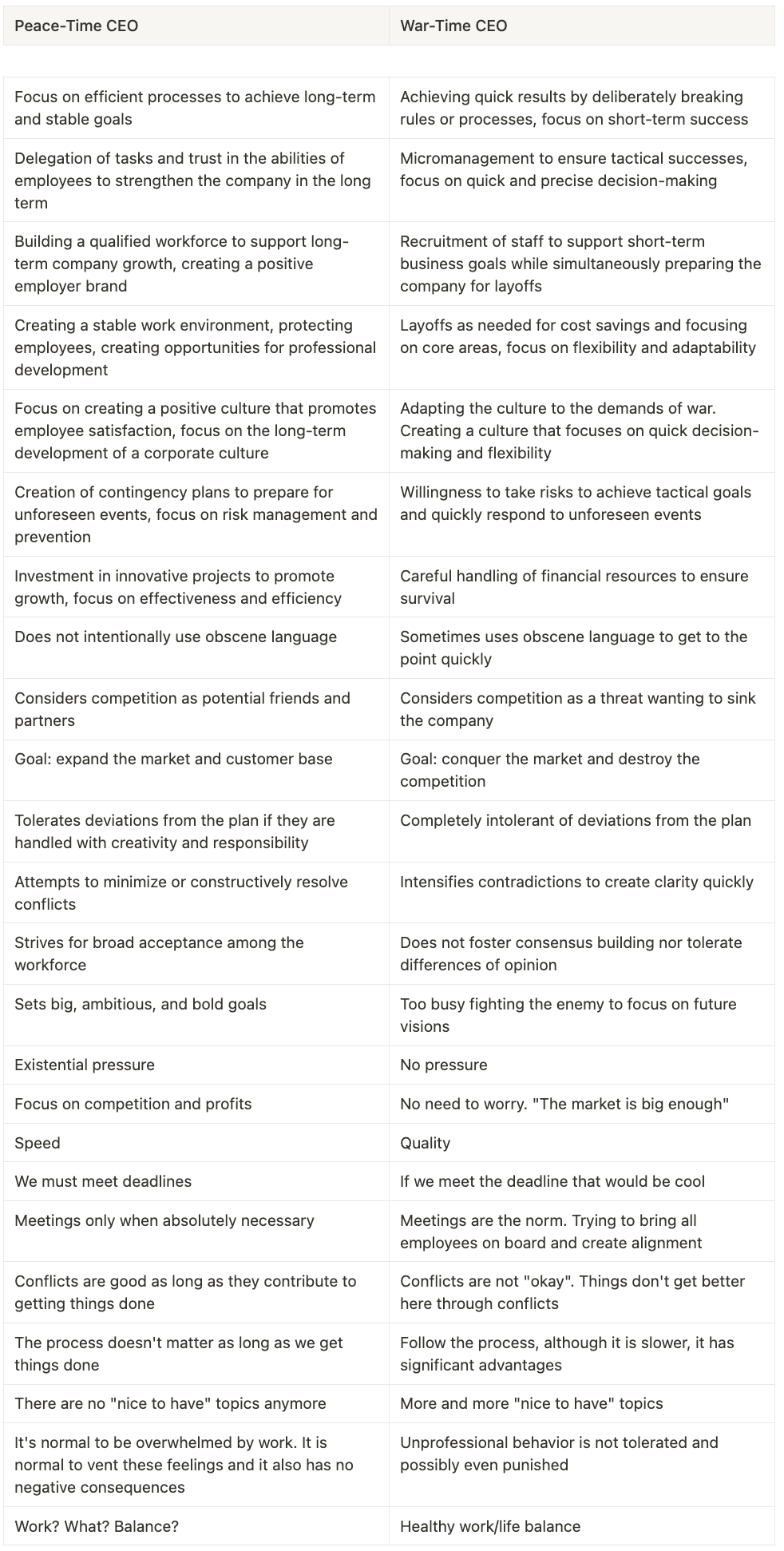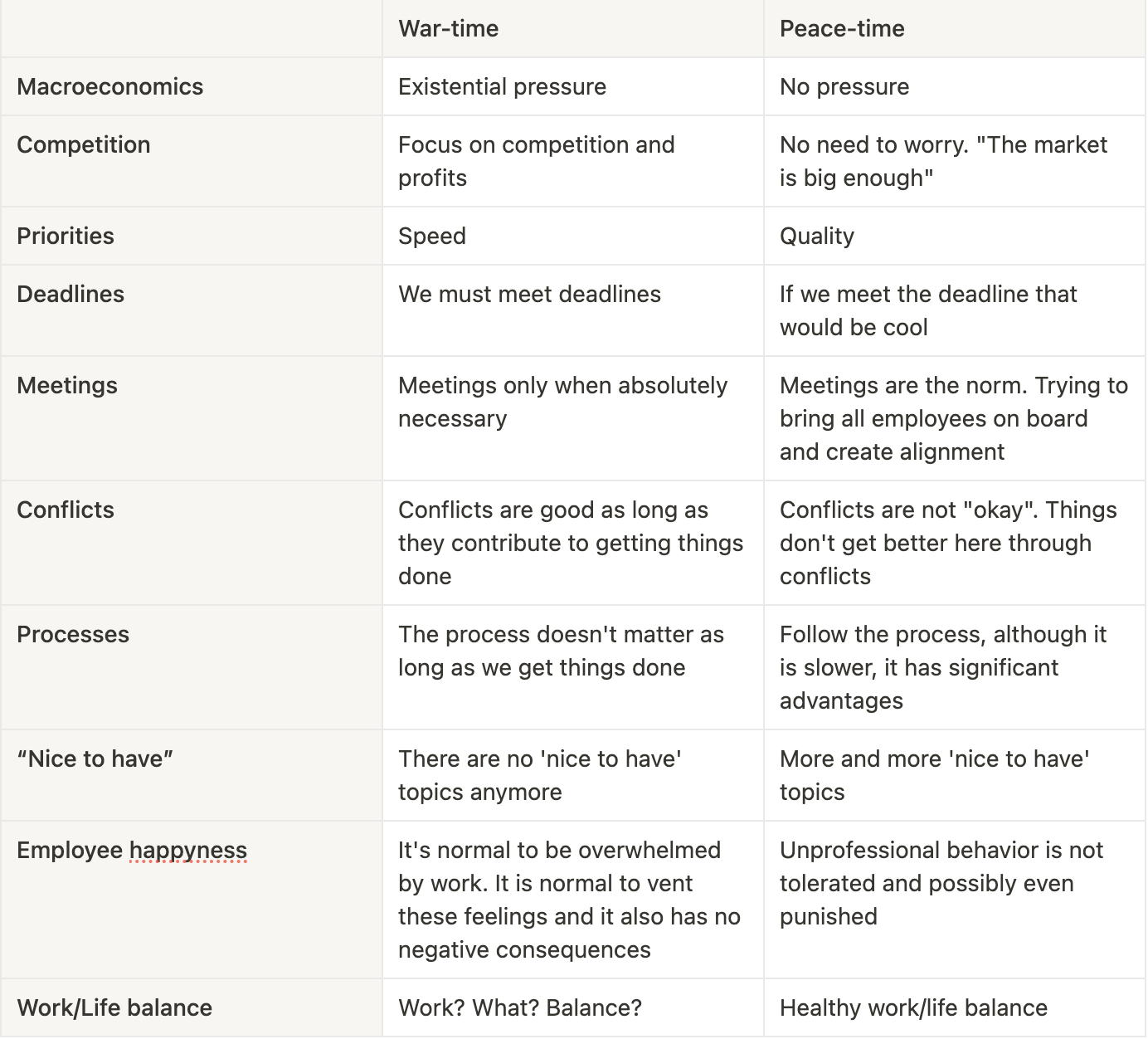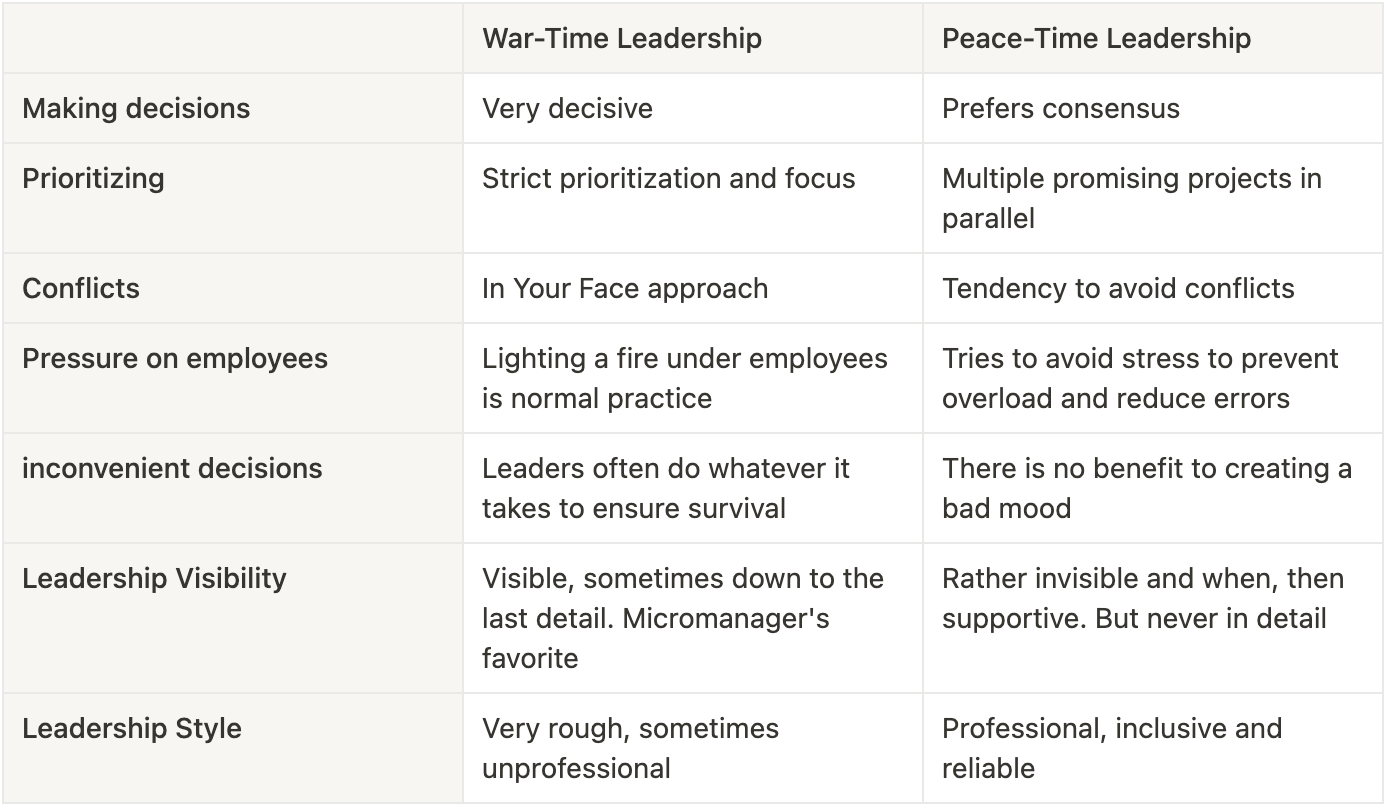In this one-off interactive, gamified workshop, we’ll simulate real-world work scenarios at your organisation via a board game, helping you identify and eliminate bottlenecks, inefficient processes, and unhelpful feedback loops.
Workshop Details


So what are "wartime" and "peacetime", and more generally, what's the deal with using military terms in a tech context?
An example of this was in the early 2010s when Ben Horowitz - co-founder of VC firm Andreessen Horowitz - published the article "Peacetime CEO/Wartime CEO" and wrote:
"Recently, Eric Schmidt stepped down as CEO of Google, and founder Larry Page took over. Much of the coverage has focused on Page's ability to be the "face of Google,"
As Page is much more shy and introverted than the gregarious and articulate Schmidt. While this is an interesting topic, this analysis misses the point. Eric Schmidt was much more than just the front man of Google; as Google's peacetime chief executive, he led the biggest expansion of the technology business in the last decade. Larry Page, on the other hand, seems to have decided that Google is going to war, and he clearly intends to be a war-time CEO. This will be a profound change for Google and the entire high-tech industry."
Here's his definition of peacetime and wartime:
"Peacetime in business is when a company has a big advantage over its competitors in its core market and its market is growing. In peacetime, the company can concentrate on expanding the market and strengthening the company's strengths.In times of war, a company defends itself against an immediate existential threat. Such a threat can come from a variety of sources, such as competition, dramatic macroeconomic changes, market changes, supply chain changes,"
and so on. The great war CEO Andy Grove, in his book "Only The Paranoid Survive", beautifully describes the forces that can take a company from peacetime to wartime.In the same article, Ben Horowitz gave several examples of the different leadership styles and wrote:

Differences between wartime and peacetimeHow do these states differ from each other? According to my observations and experience, there are a few major differences:

How do the leadership styles differ in each state? My observations:

Not Sure Where to Start?
In this one-off interactive, gamified workshop, we’ll simulate real-world work scenarios at your organisation via a board game, helping you identify and eliminate bottlenecks, inefficient processes, and unhelpful feedback loops.
Workshop Details

